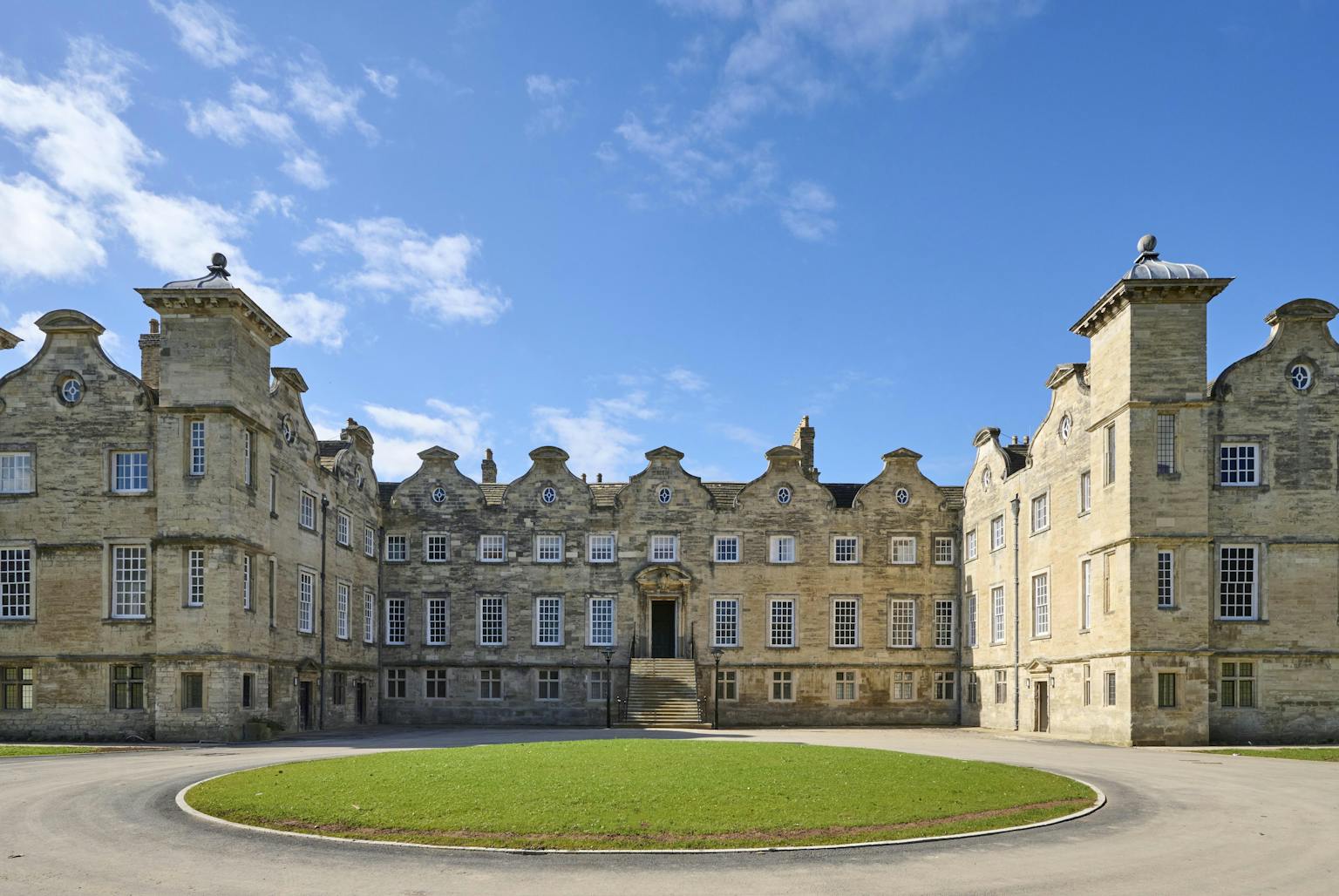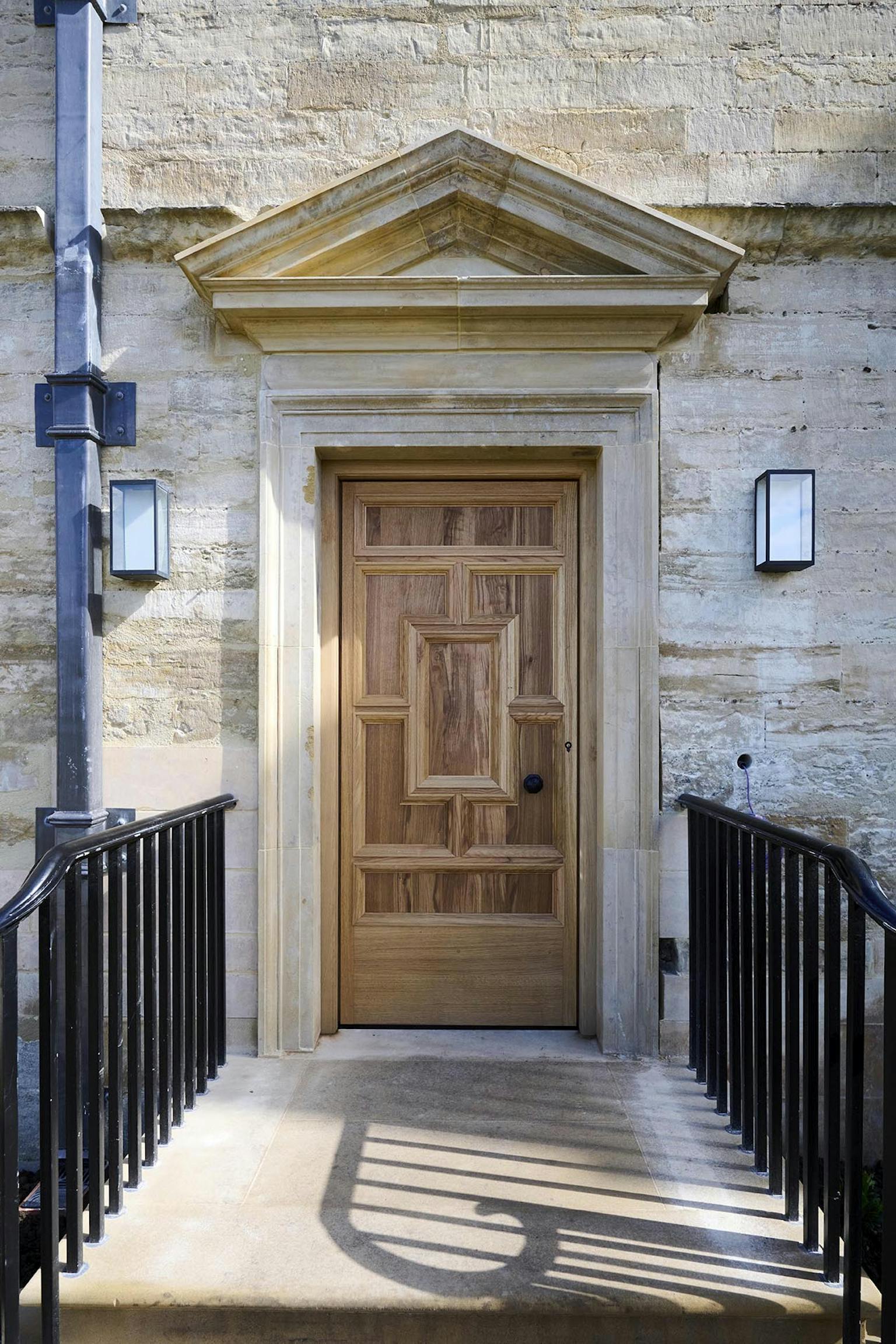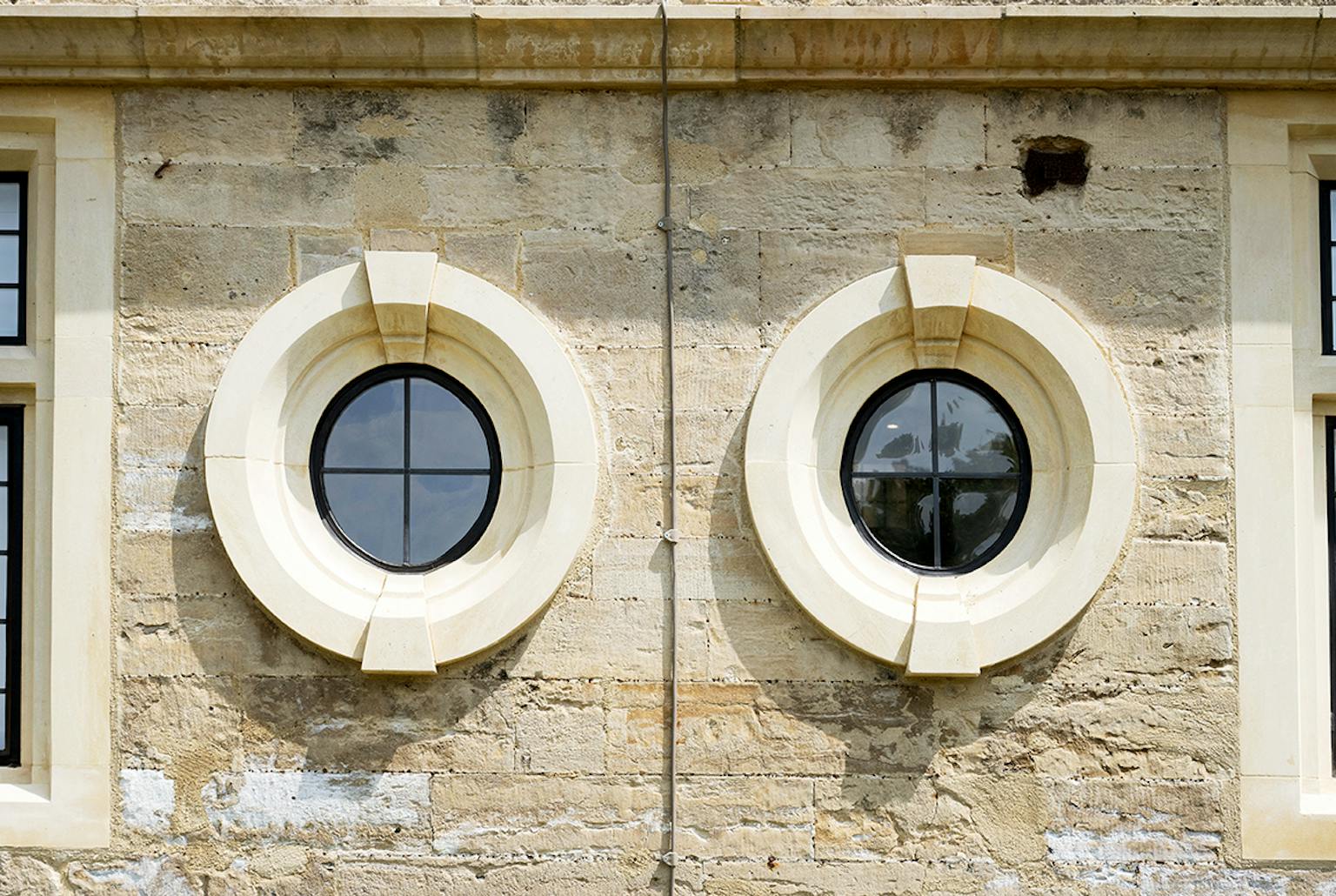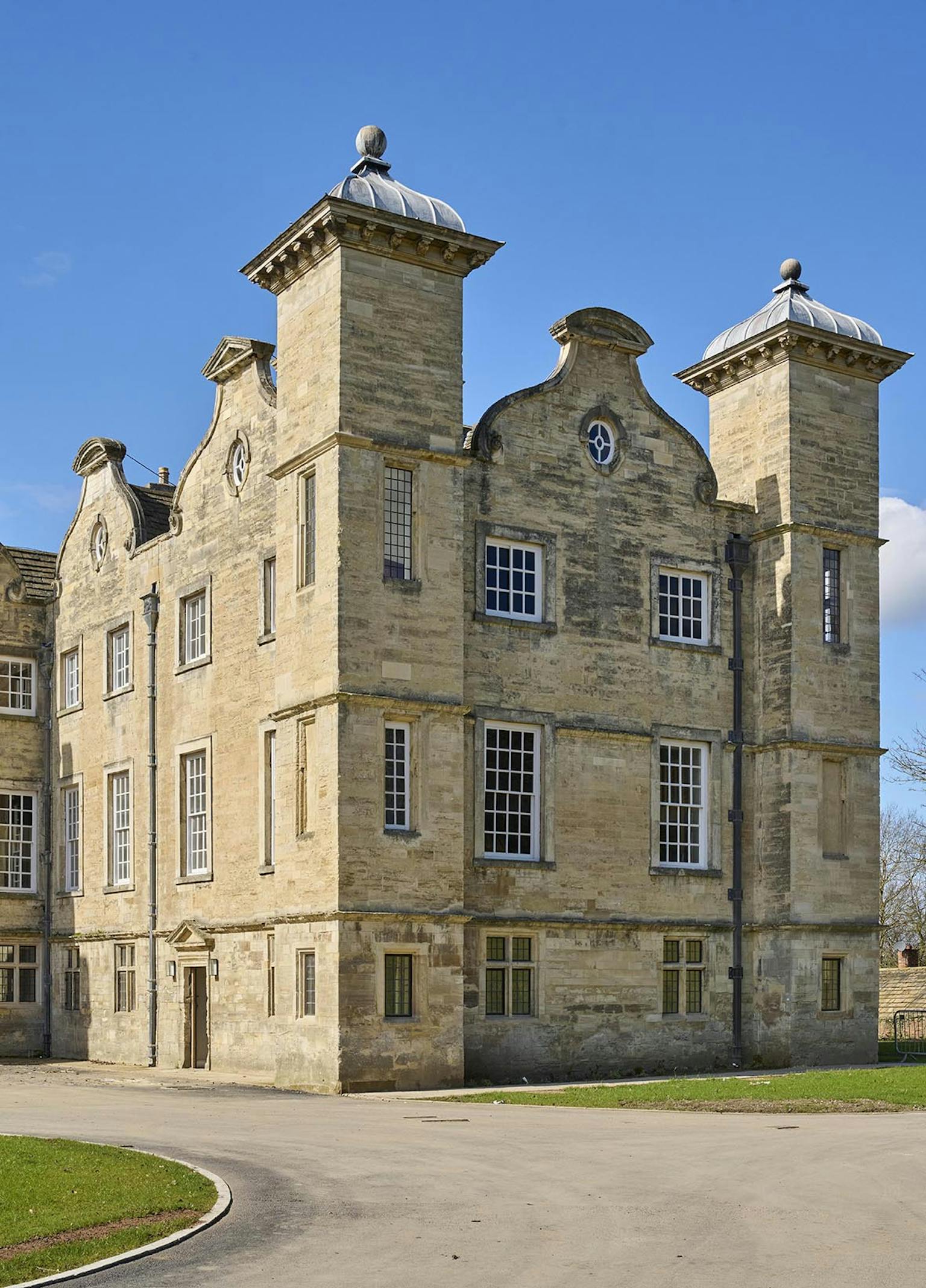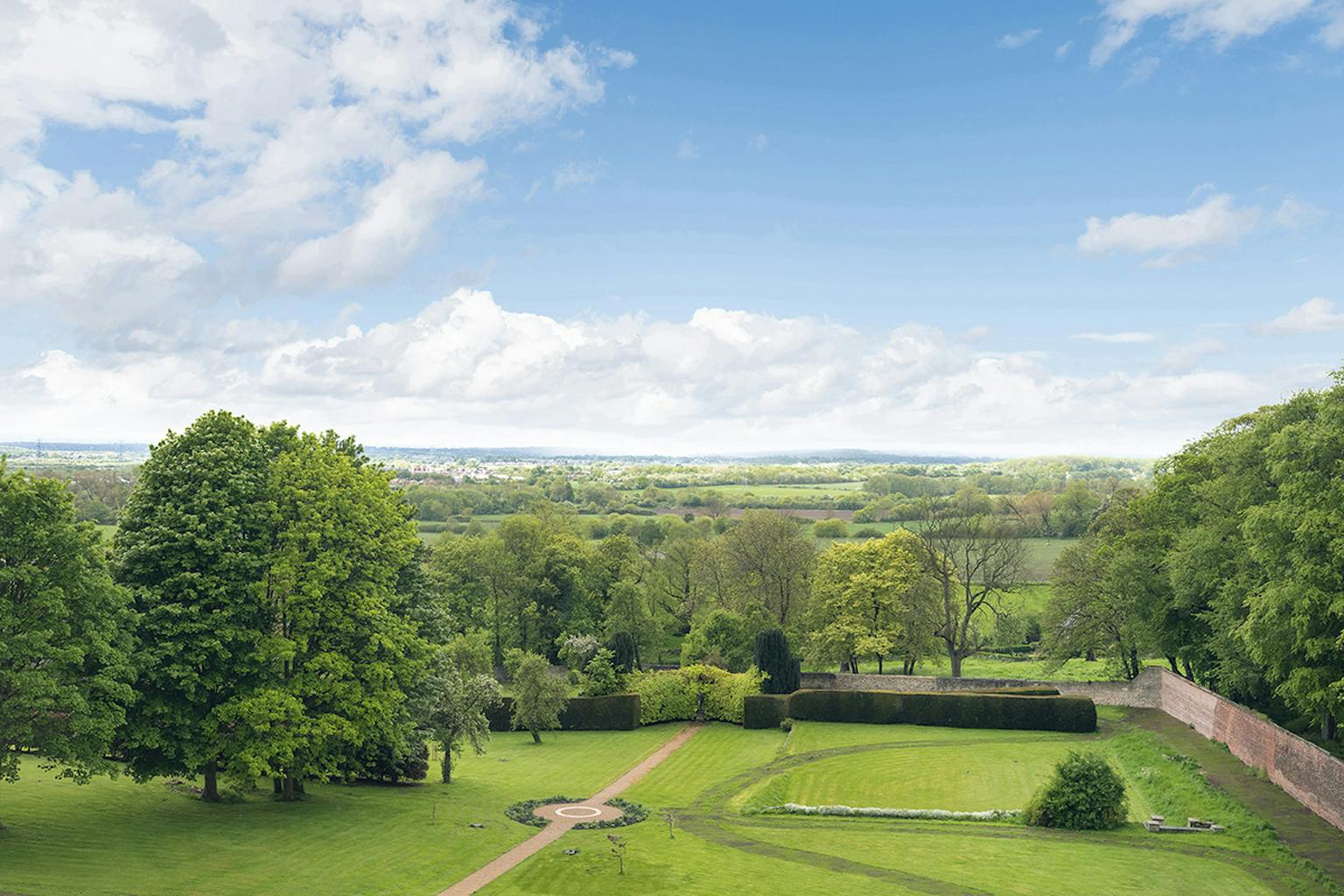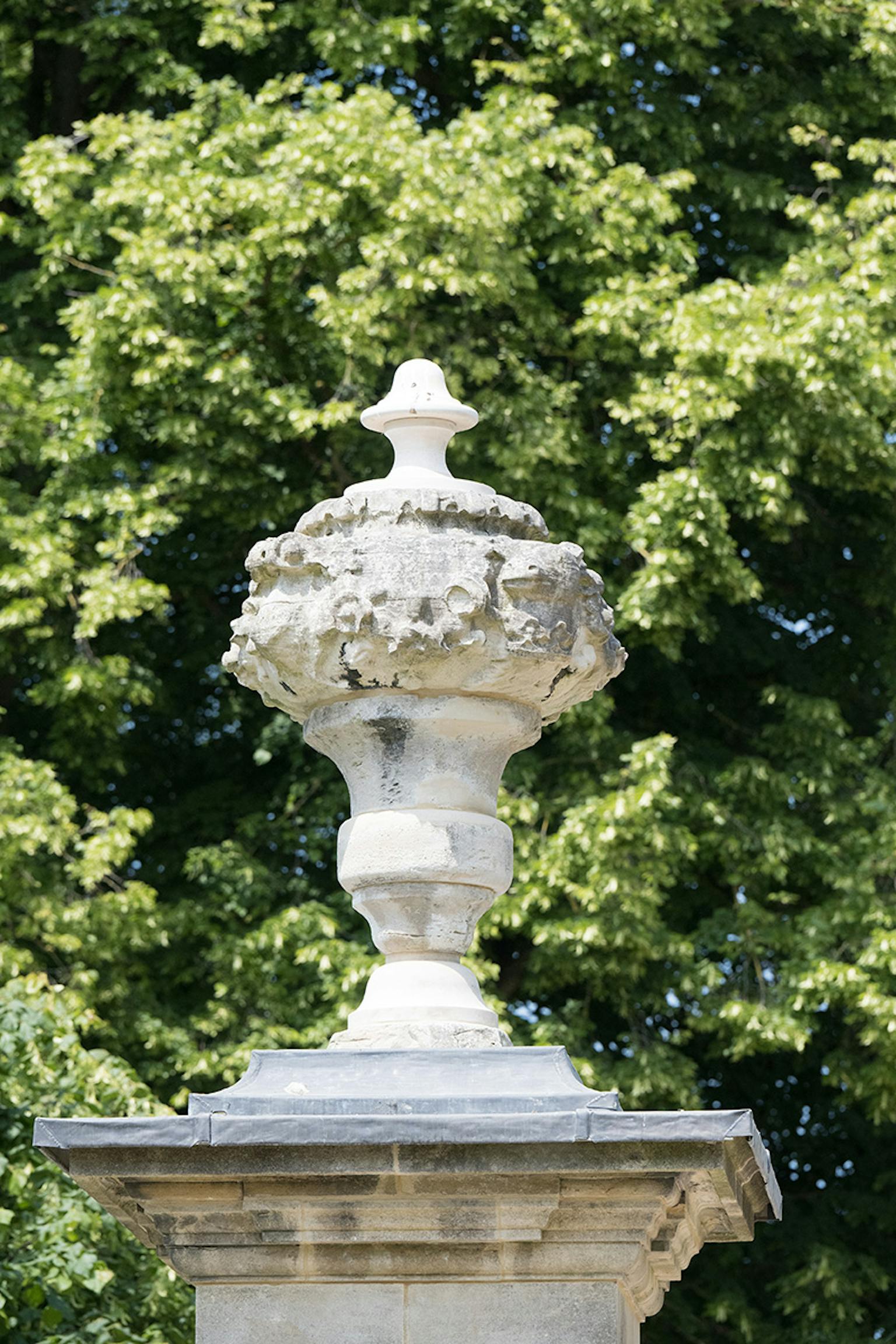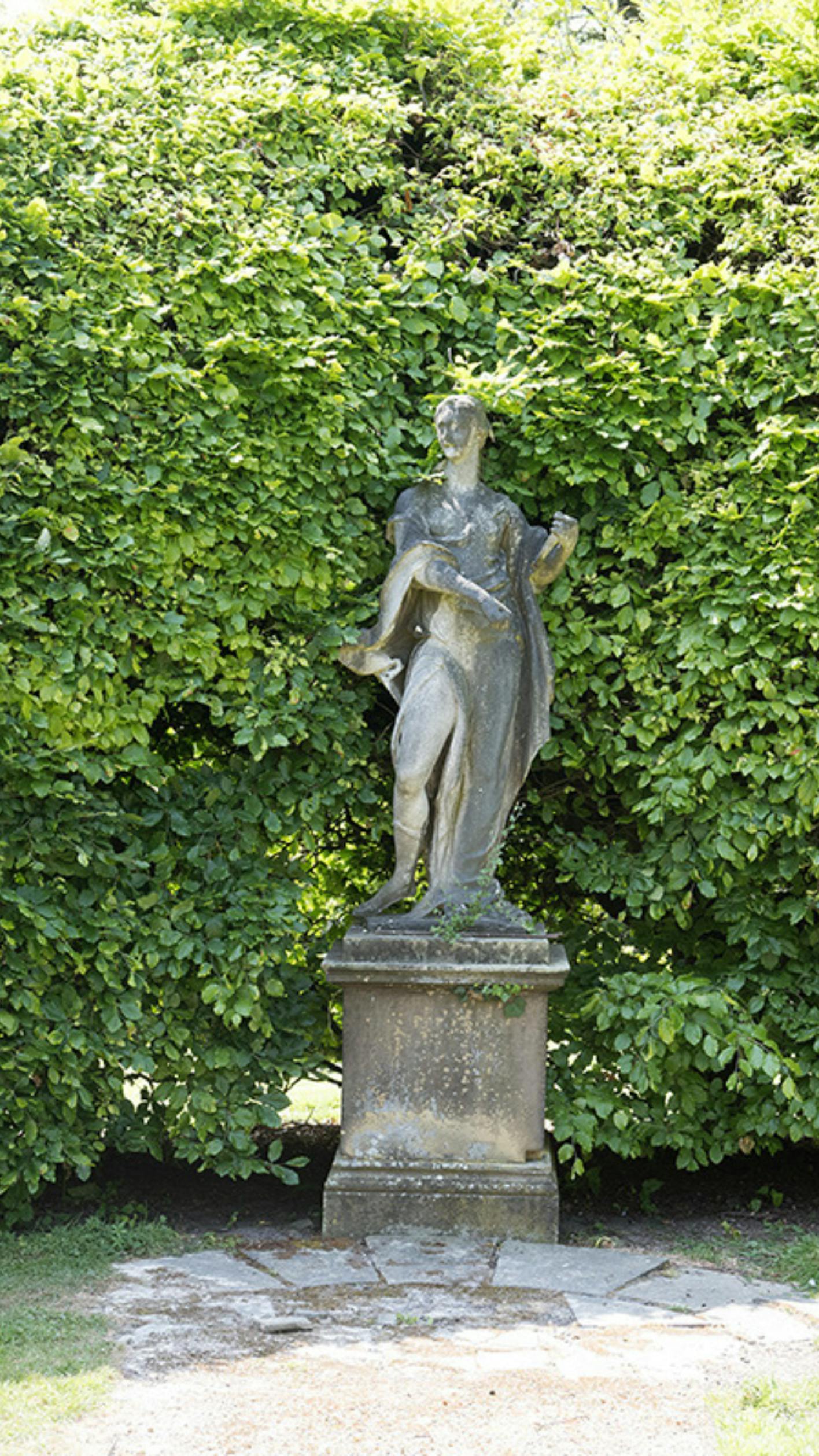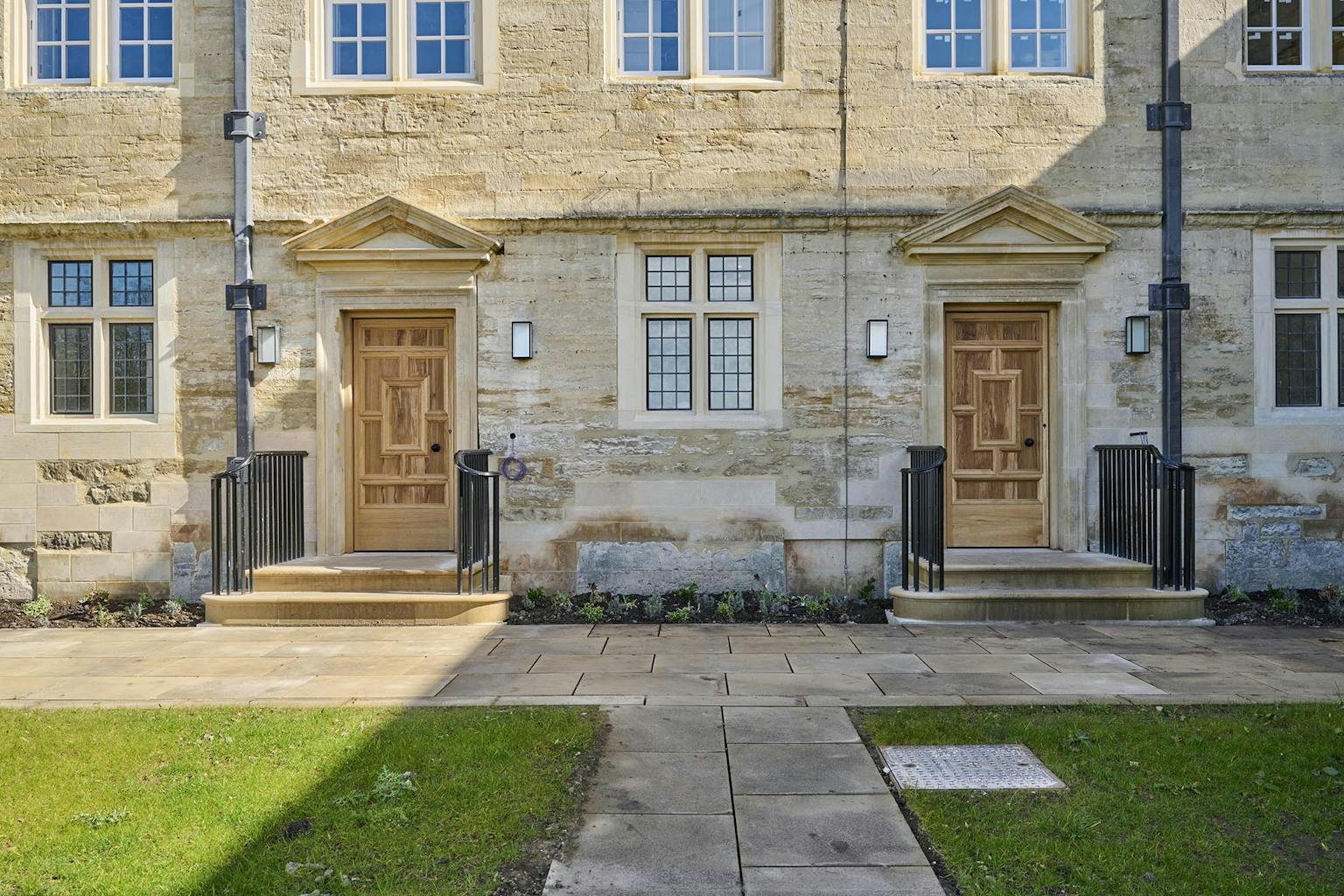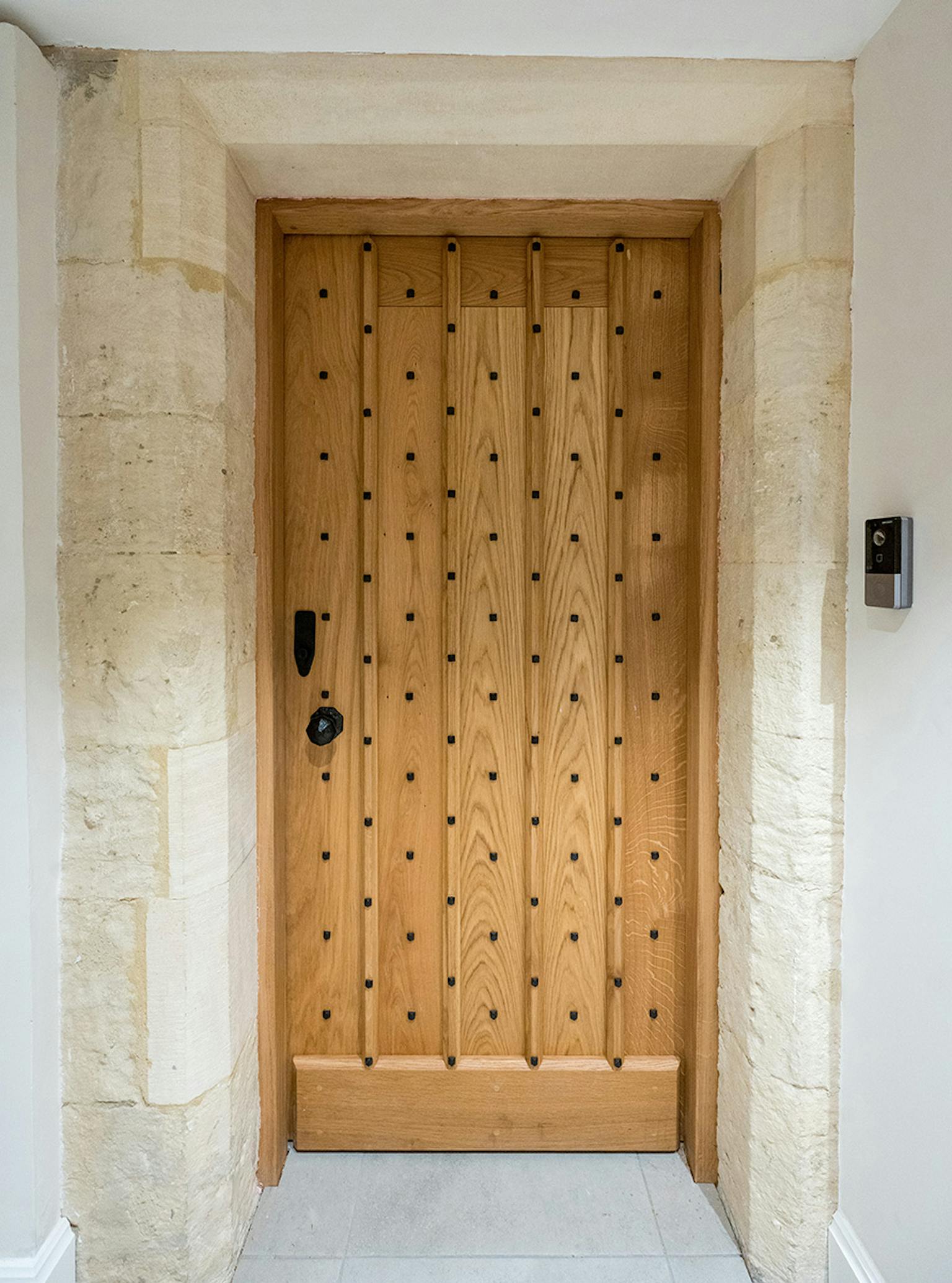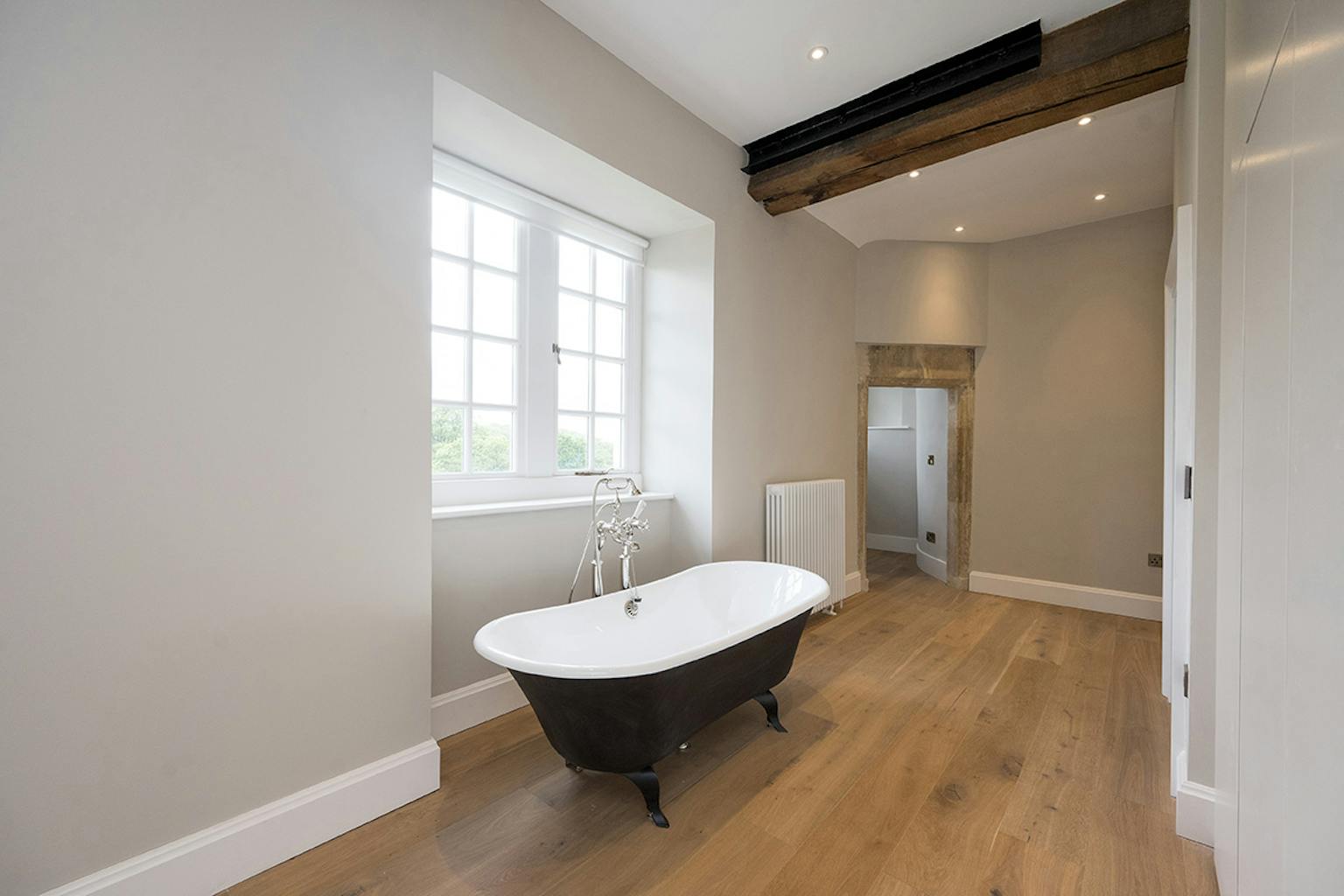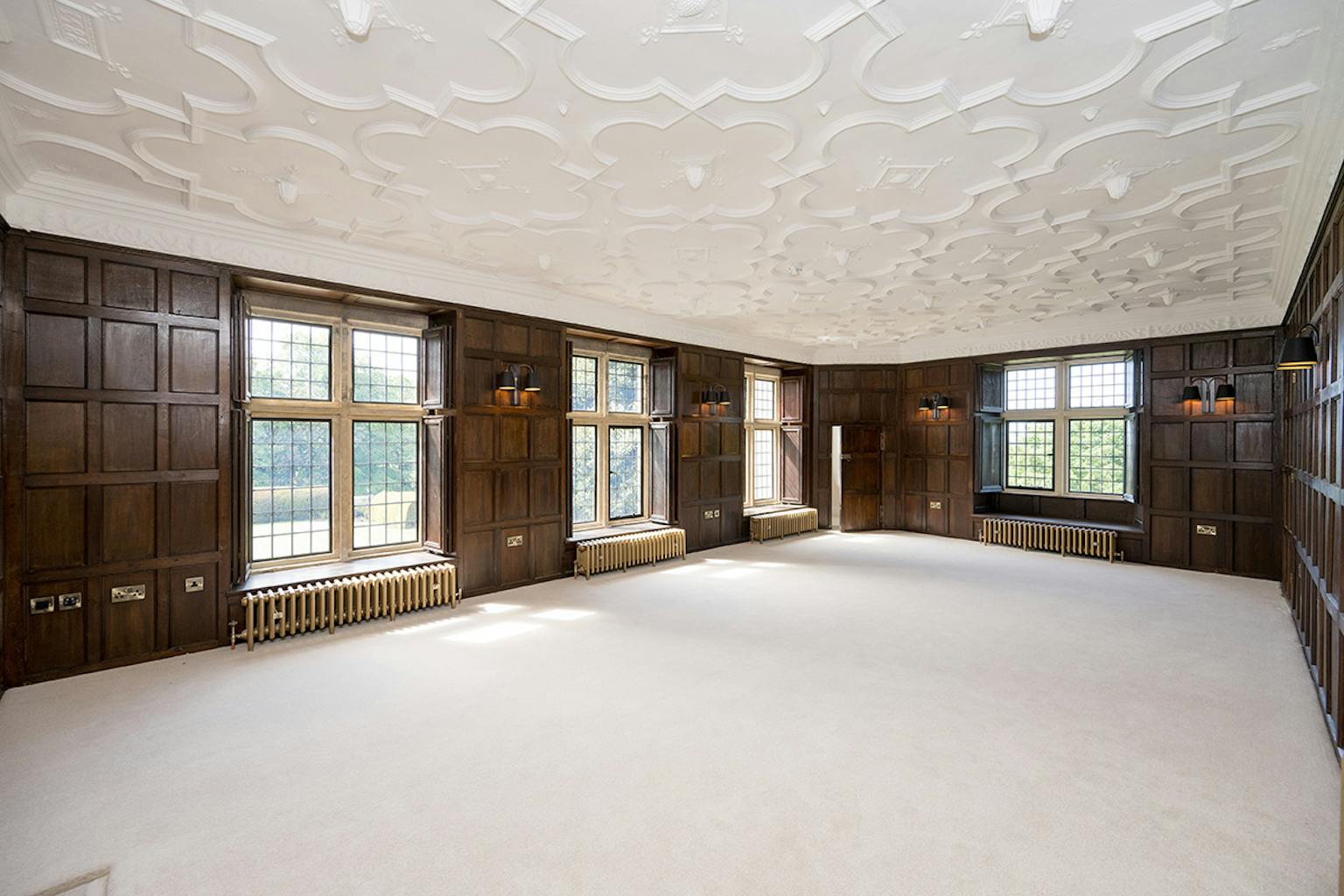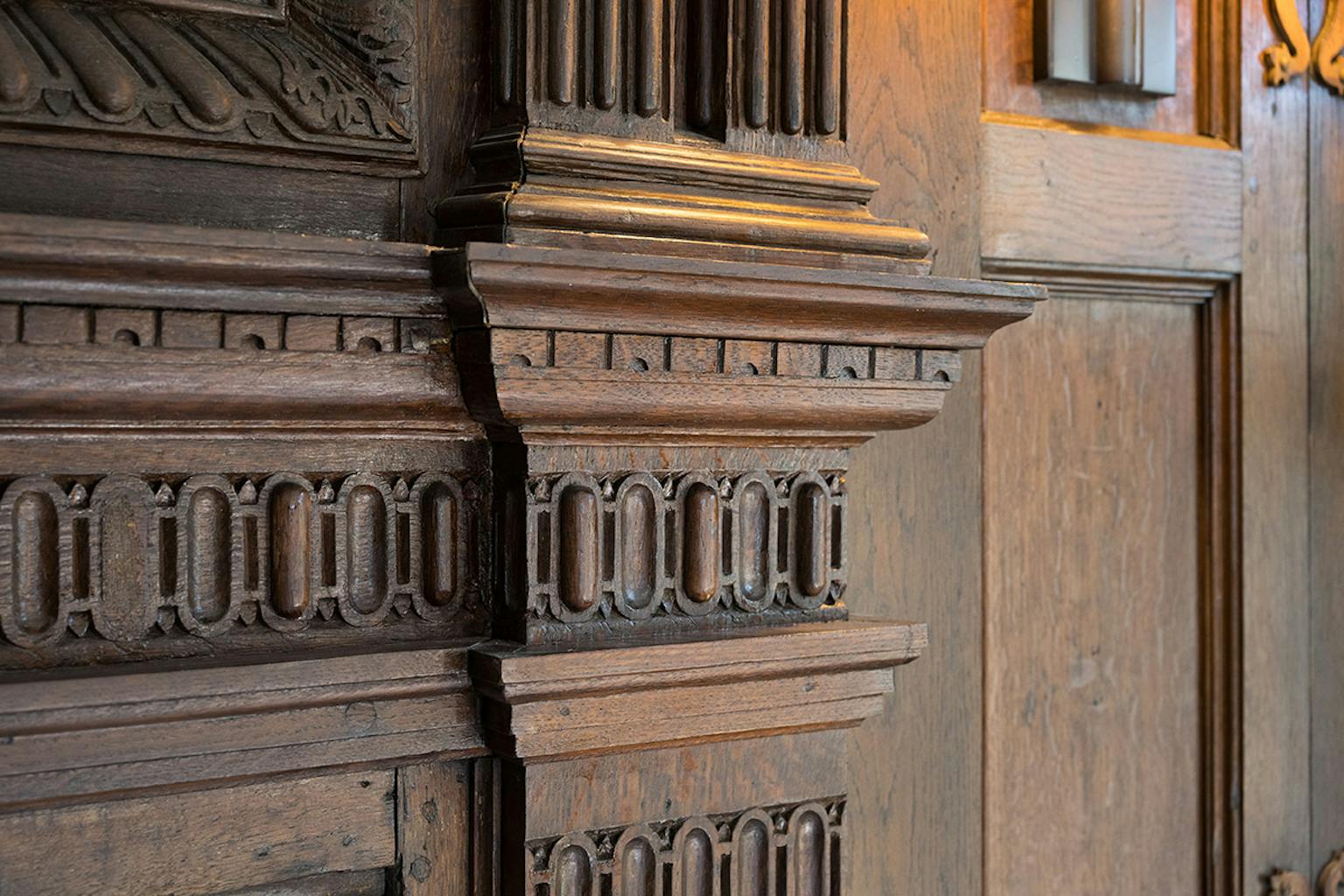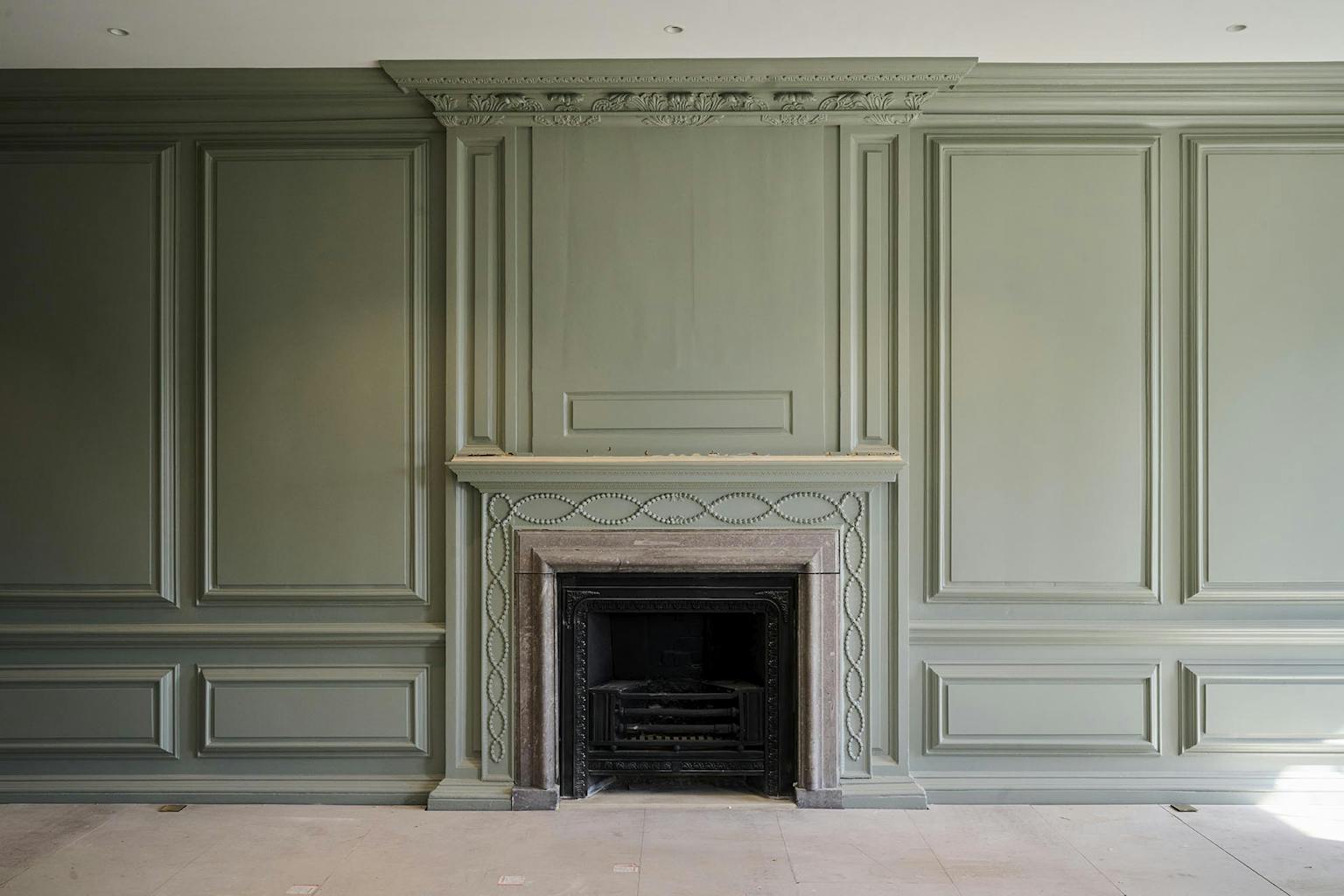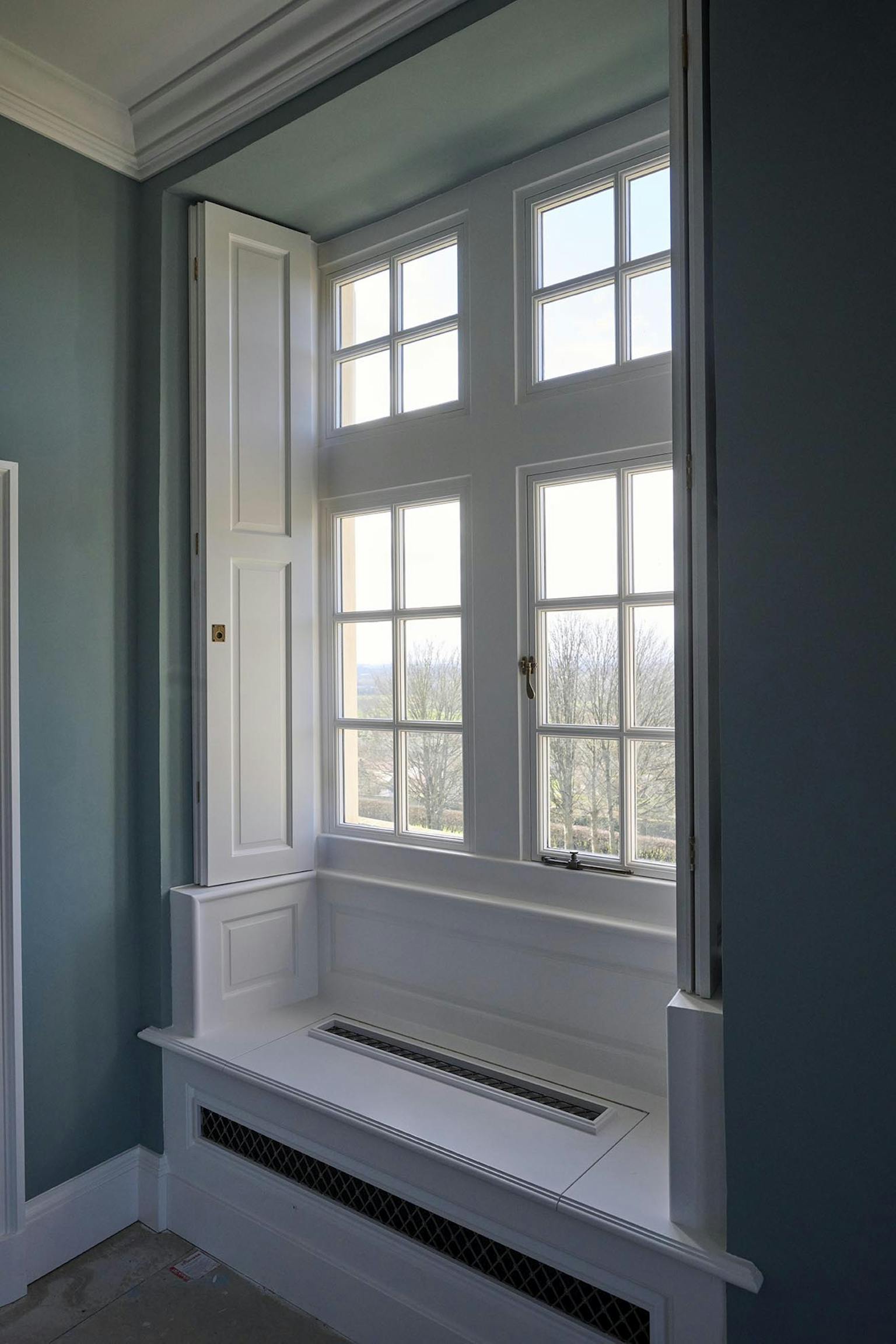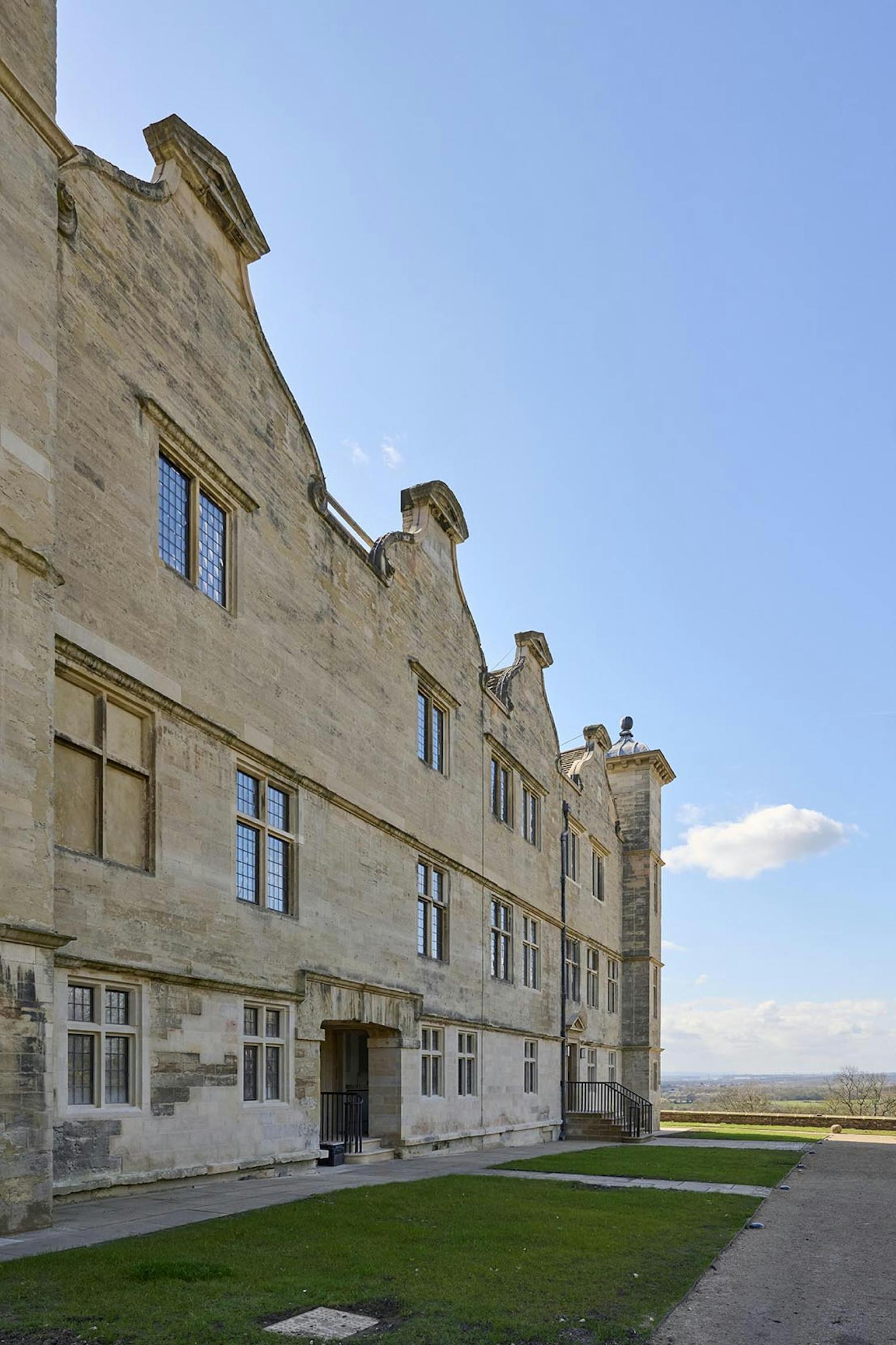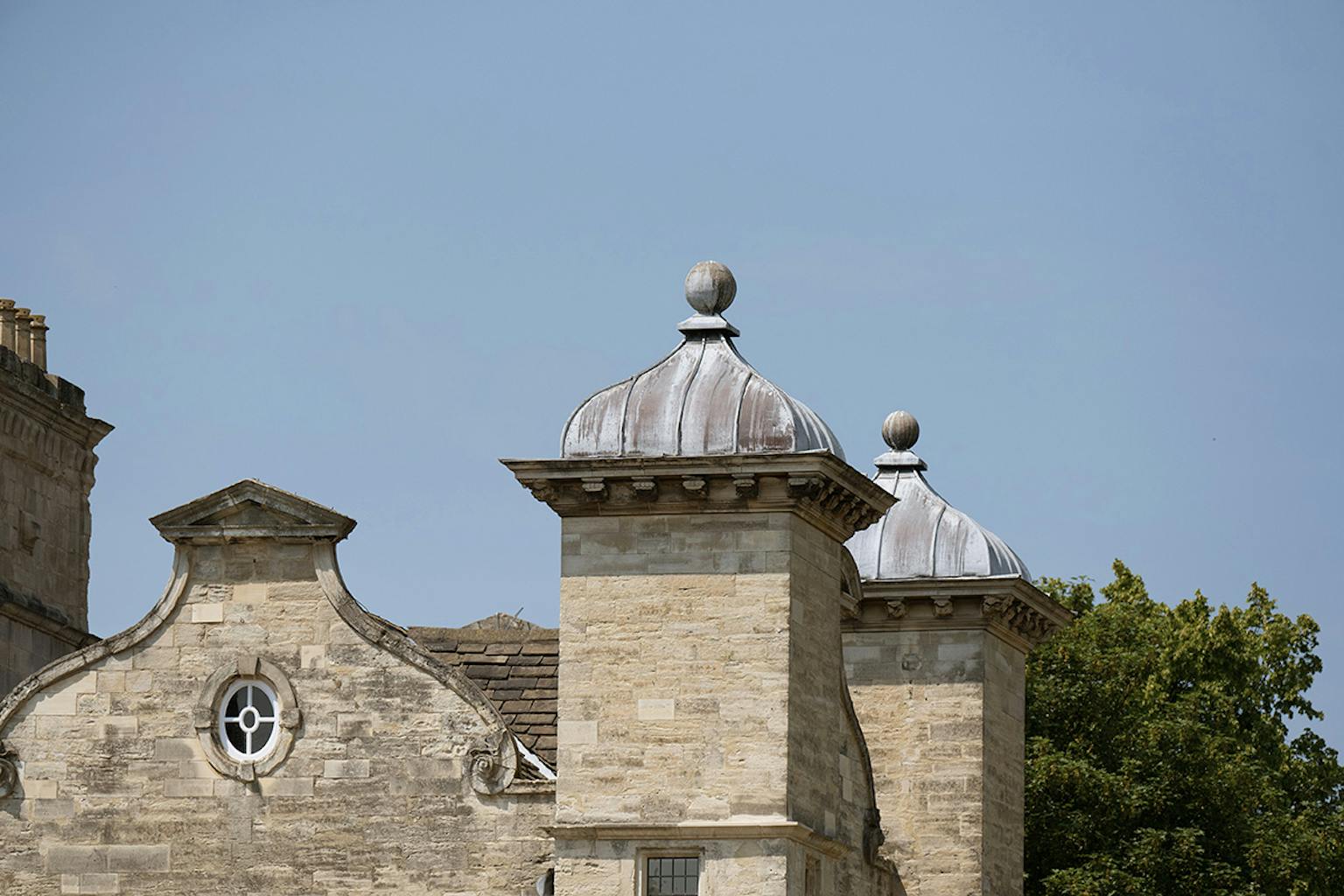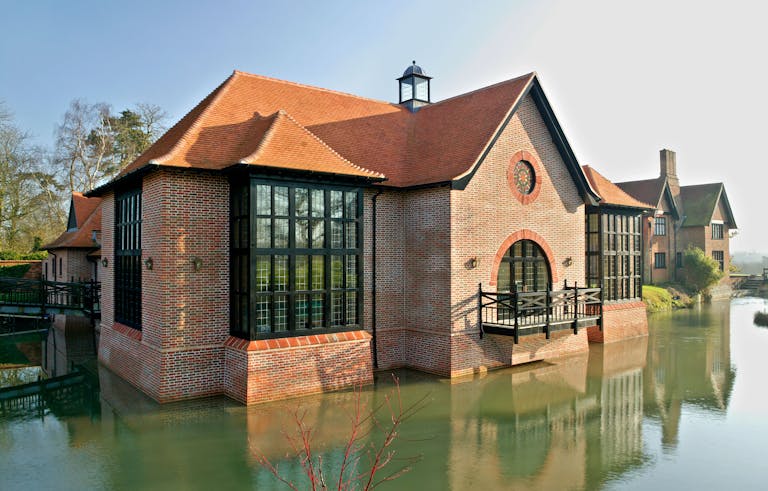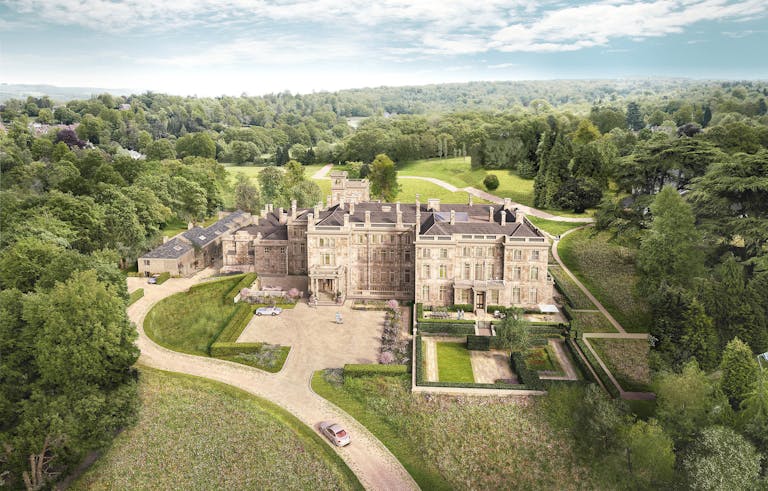
Ledston Hall
Rescuing and adapting a stately home into luxury apartments
- Location
- Yorkshire & North East
- Client
- The Wheler Foundation
- Awards
- Yorkshire Insider Property Awards 2023: Refurbishment and Renovation Project of the Year
Ledston Hall is a Grade I-listed country house, set within a Grade II*-listed registered Park and Gardens in Yorkshire. The Hall, which is owned by The Wheler Foundation, dates to the 12th century and had, prior to this project, been largely vacant since the 1960s.
Working as lead architects and heritage consultants alongside the client, consultant team and specialist contractors, Purcell undertook extensive building fabric repairs, extensions, and adaption to the interior layouts to create ten luxury residential properties and private function rooms.
Ledston Hall began to fall into decline in the early part of the 20th century, when the owners began to struggle to afford the ongoing maintenance on the hall. Part of the hall was converted into flats in the 1960s, but the rest of the building lay vacant, ultimately becoming unsafe and unhabitable and eventually being put on Historic England’s Heritage At Risk Register.
A charitable trust, The Wheler Foundation, was established in 1992 by the last descendant of the hall, Granville Wheler, with the aim of preserving historic buildings and landscapes. In 2004, the ownership of the Ledston estate was passed to the Trust.
The trust commissioned Purcell to undertake a strategic plan to identify a sustainable use for the historic hall and landscape, in which residential was found to be the most appropriate. The Trust set about exploring funding options for the repair and renovation.
The extensive restoration and refurbishment project has saved this historic asset, which has now been removed from the Heritage at Risk Register and has a secure future.
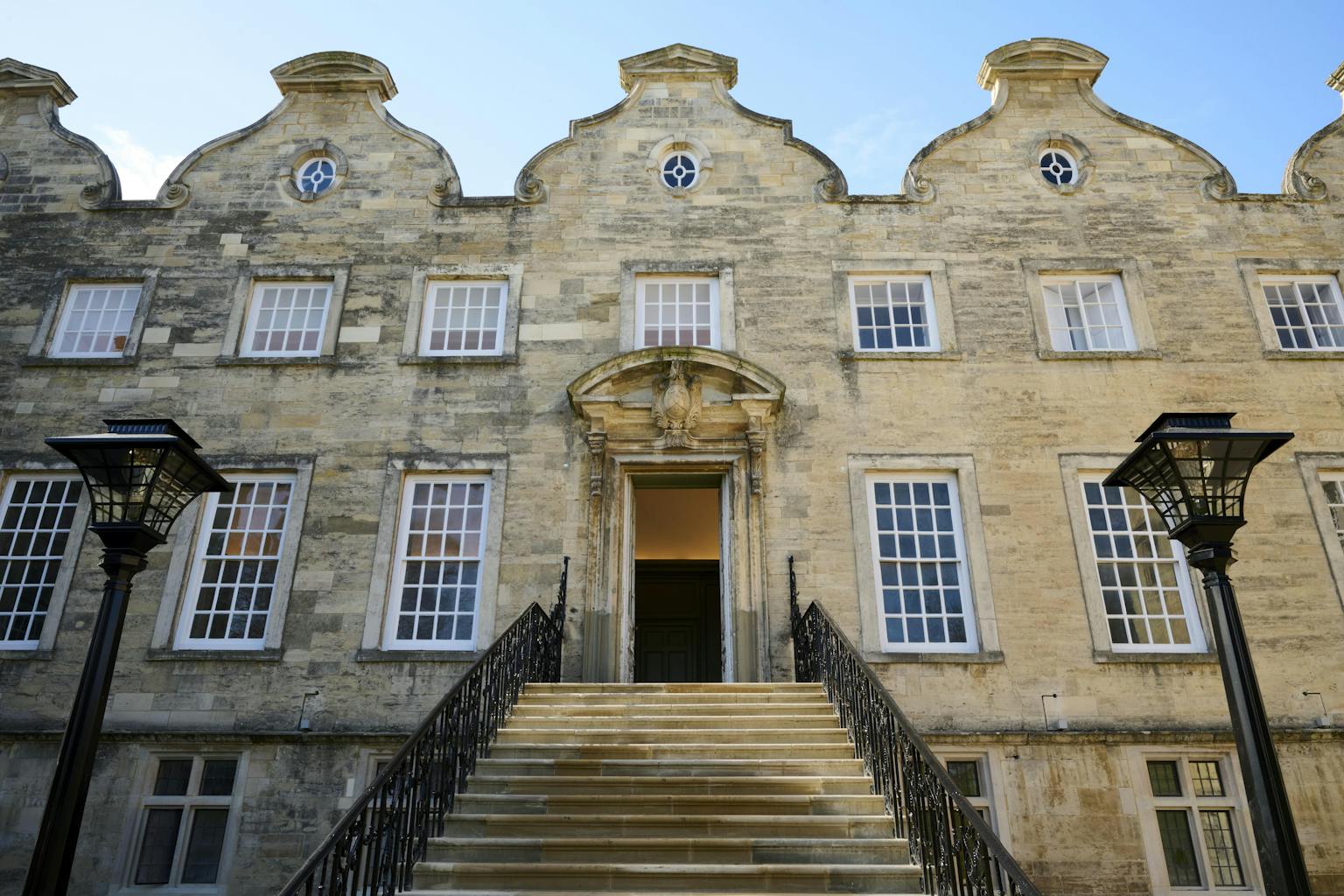
The design development was a collaborative process between client, design team, and stakeholders, to ensure that proposals created spacious, desirable homes without harming the significance of the listed building. It was also essential that the new building function would be appropriate within its heritage context whilst being able to secure revenue to cover the ongoing maintenance needs of the hall.
To fully inform our designs, our Heritage Consultancy team carried out extensive research on the historic building fabric and the building’s setting within the listed gardens and landscape. The resulting heritage statement laid the foundations for the successful conversion of the hall into ten luxury residential properties and function rooms, with profits going back into the estate.
New interventions including an energy centre, maintenance store, and residential stores are positioned in the walled kitchen gardens to support the hall, while a sensitively designed landscape scheme facilitates parking for residents and visitors north of the hall.
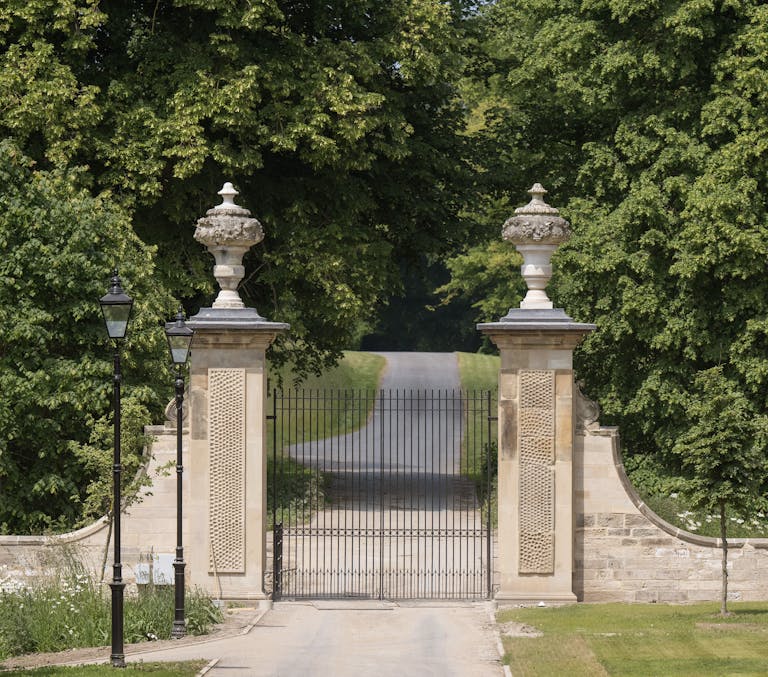
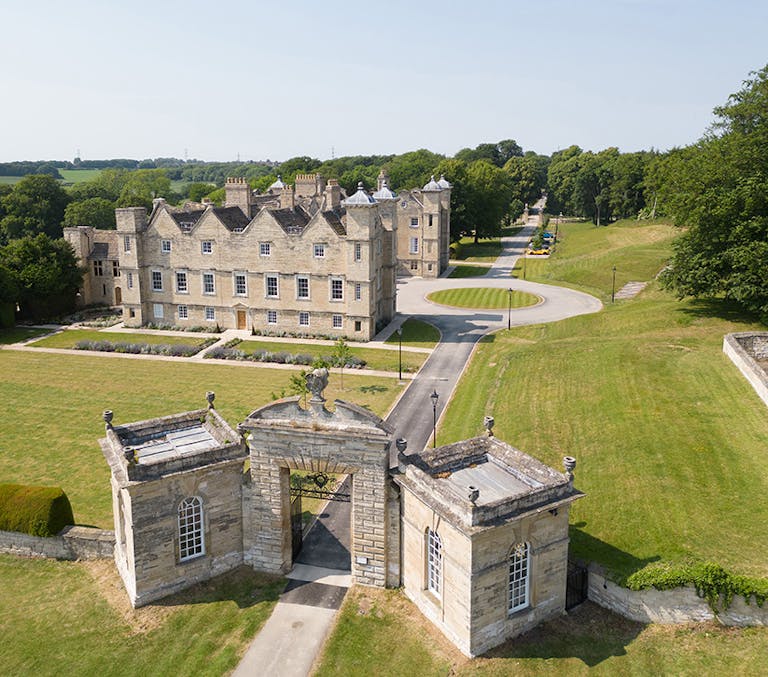
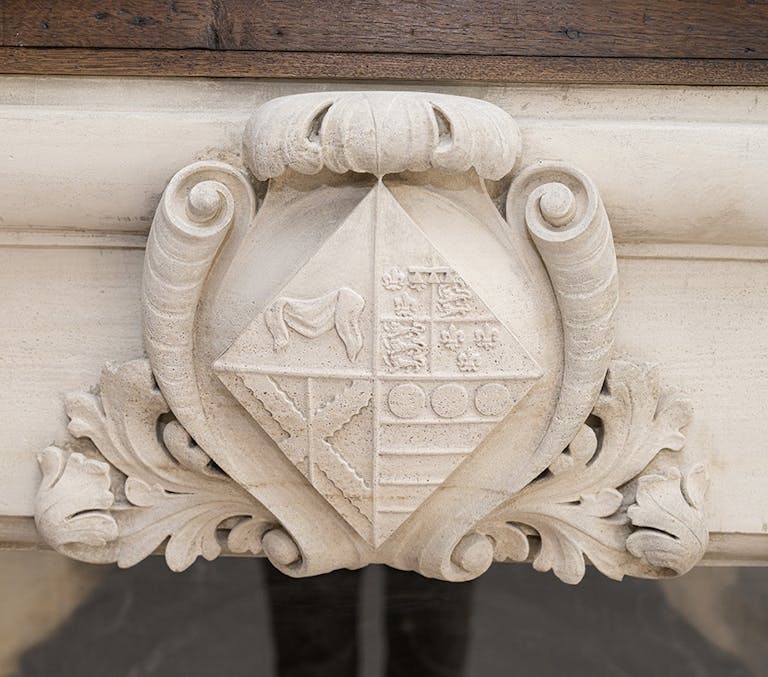
The approach to the hall’s historic driveway through the North Park has been reinstated, with new footpaths and planting leading up to the properties. Boundary walls have also been stablised, while the Grade II-listed garden steps have been repaired, enabling safe access for residents and the public to enjoy the gardens.
Extensive repairs to the building’s fabric ensured that the renovated hall was watertight, with extensive stone replacement and mortar repairs carried out by skilled stone masons. New stone door surrounds have been carved to create the new entrances into the building, and lead roof repairs and York Stone roofs have been repaired and ventilated.
The completed Ledston Hall project is notable for being one of the first Grade I-listed buildings to gain consent for replacing a number of metal framed leaded windows with slim-line double glazed units. Remaining windows have been carefully conserved, repaired and draught sealed. Heat loss through the new windows is 65.5% less than the original windows. This marks a significant turning point for upgrading the carbon efficiency of listed heritage buildings, demonstrating that progressive, energy saving solutions are compatible with the conservation of historic buildings.
A historic analysis of existing windows, conducted with specialists Touchstone Glazing Solutions, and an extensive condition survey to determine the windows’ age and type of glass helped inform the selection for replacement windows with double glazing, with the most significant windows retained and fully refurbished. . During consultation with Historic England and Leeds City Council, in-situ samples of the windows were installed, strengthening the proposal and leading to full support for the scheme.
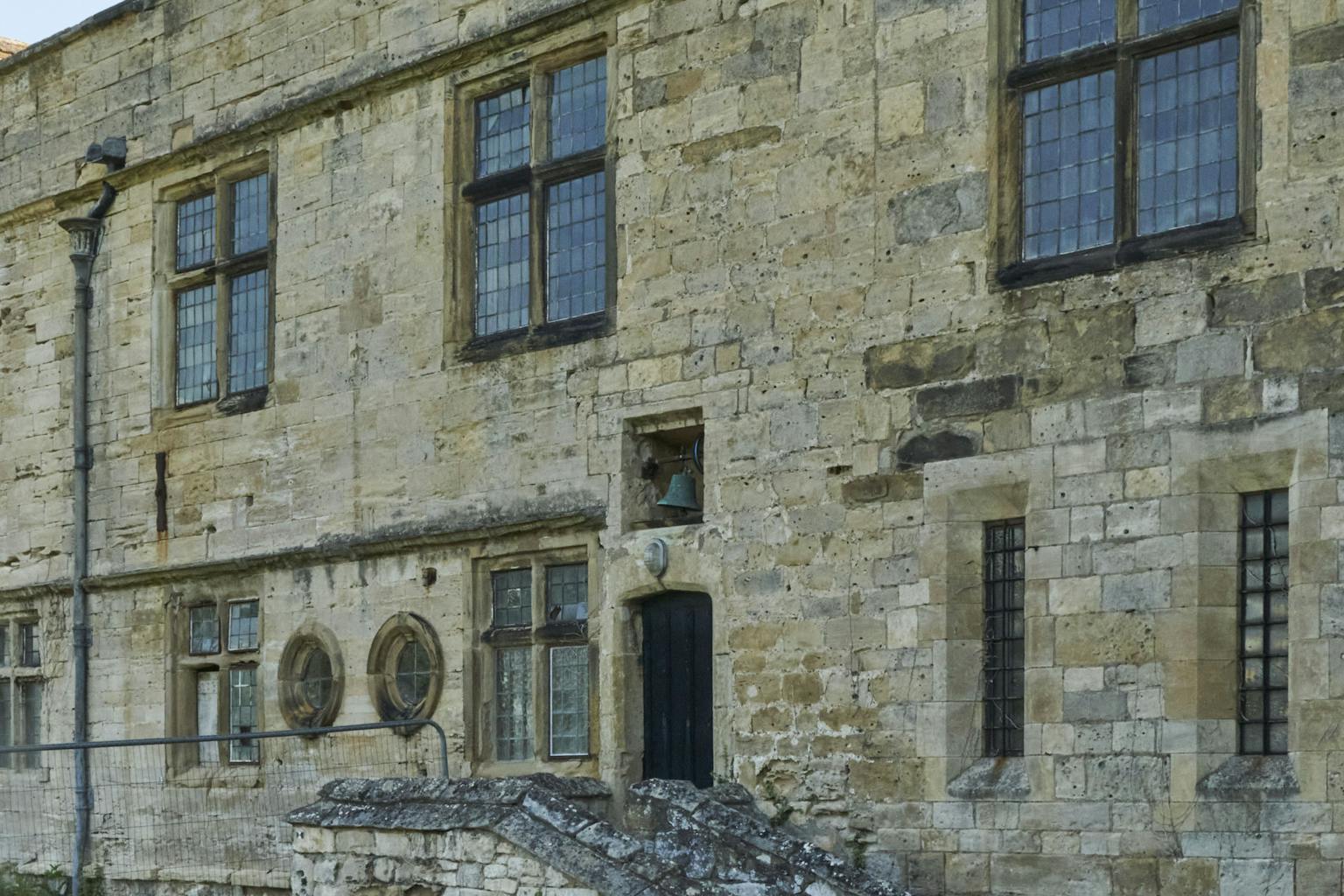
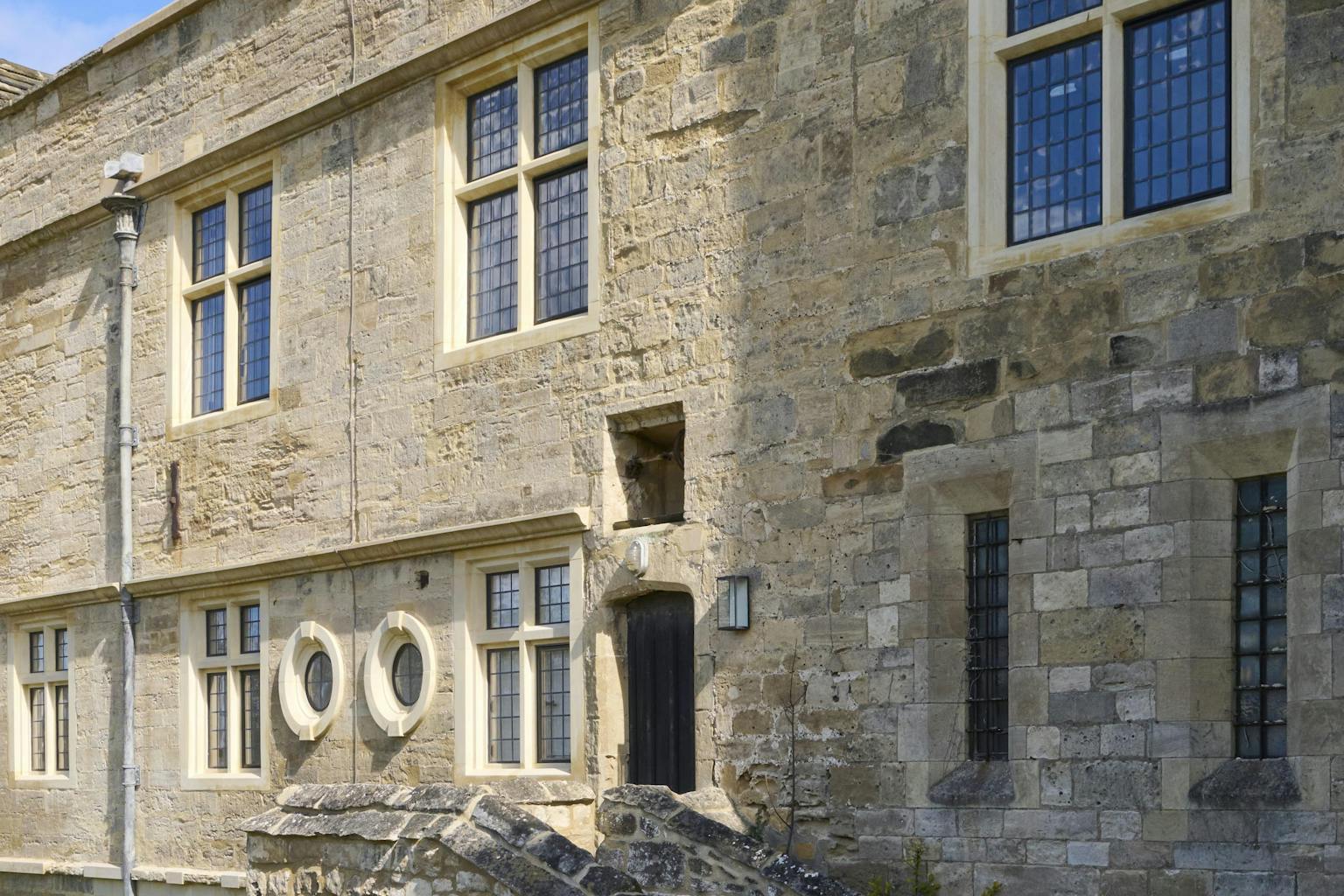
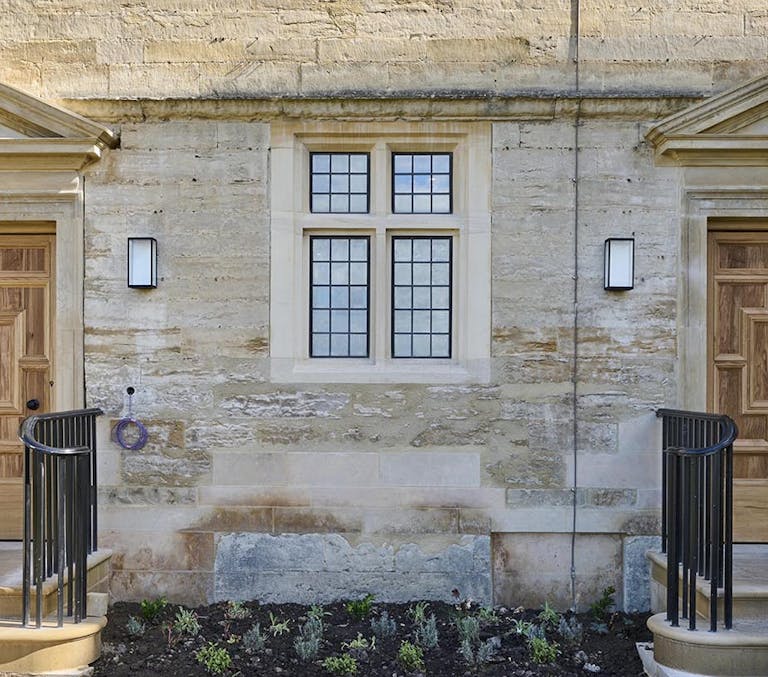
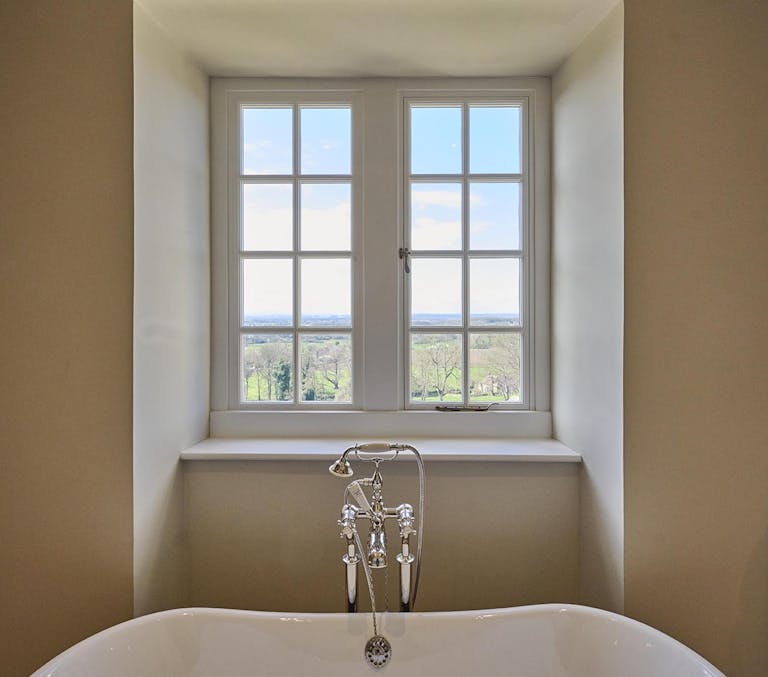
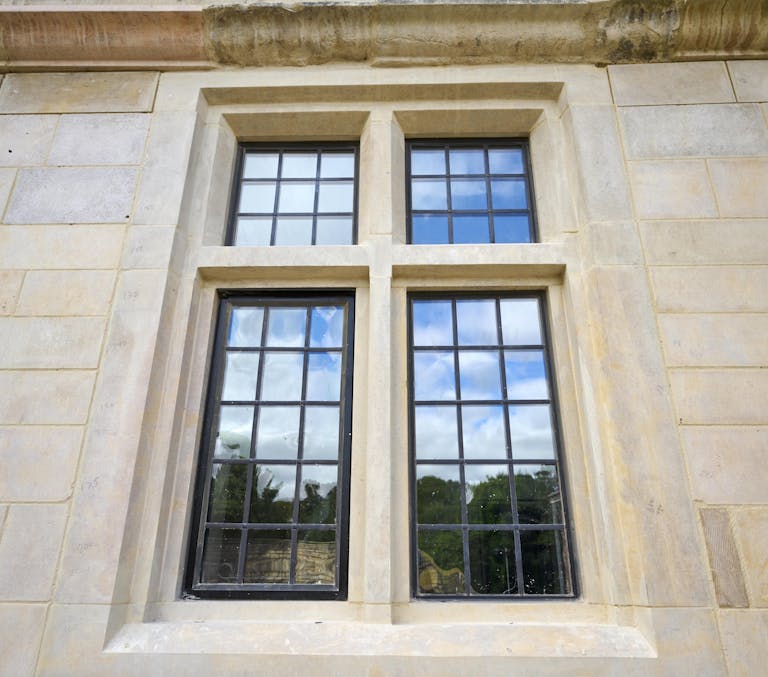
The overarching aim for the project was to find a sustainable use for this magnificent building. This extensive conservation and renovation project has secured a sustainable future for the building and landscape: a true achievement in terms of overall sustainability, given the considerable amount of embodied energy within the building.
Specialist local contractors, skilled in working on historic buildings, were appointed to guarantee a high level of quality throughout the project. Traditional techniques and materials including the use of lime plasters, lime mortars, stone masonry, traditional joinery, blacksmithing, and lead work were used throughout the project. The contractor employed local labour and apprentices from the surrounding towns and villages to work on Ledston Hall, helping to preserve and pass on these heritage skills to the trainees and apprentices employed on the project, many of whom reported feeling a sense of pride to work on a local landmark.
Adaptations to improve accessibility had to be carefully considered to ensure that they did not harm the significance of the listed building. Accessibility needs were considered for both the function rooms and residential properties: accessible parking, level access through much of the building, safe access throughout the gardens, induction loops, and the insertion of eight lifts have successfully demonstrated that accessibility can be compatible with a Grade I-listed building.
The refurbishment of Ledston Hall has been overseen by owners The Wheler Foundation. The charity’s mission, of preserving historic buildings and countryside education, was at the core of the project to refurbish Ledston Hall, which has now been brought back into use and removed from the Heritage at Risk register.
